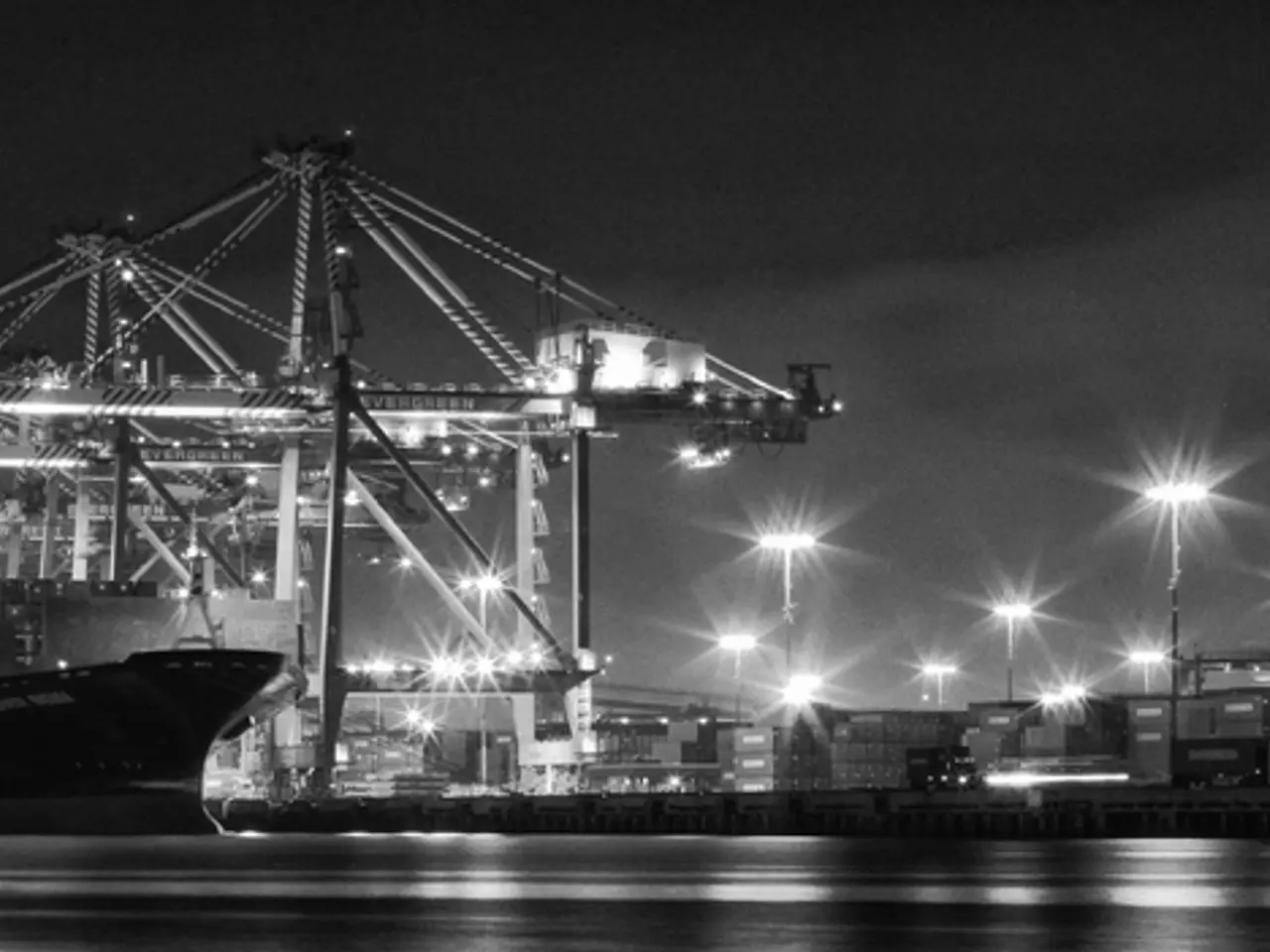Negative Impact of US Trade Policy on NRW Businesses
Negative Impacts of U.S. Tariffs on North Rhine-Westphalia's Economy
A recent survey conducted by the Chambers of Industry and Commerce in North Rhine-Westphalia (IHK) has revealed that the current U.S. trade policy, including increased tariffs on imports from the EU, is negatively impacting the region's economy, particularly in sectors like mechanical engineering, the metal industry, and wholesale trade.
The survey, which involved 952 companies, found that 81 percent of companies with U.S. business cited trade policy uncertainty as the main problem. Among companies doing business with the U.S., almost 90 percent reported negative impacts. Three out of four companies in the survey reported negative impacts due to the current U.S. trade policy.
The primary concern for companies with U.S. business is trade policy uncertainty and fear of new tariffs. The current U.S. base tariff of 10 percent, which is set to rise to 15 percent, is causing concern among businesses.
Particularly affected industries in North Rhine-Westphalia's economy are mechanical engineering, the metal industry, and wholesale trade. The increased tariffs on imports from the EU, elevated to 15 percent on EU goods after negotiations, with potential for even higher rates like 25-30% on certain sectors, are causing headwinds for these sectors by increasing costs for exports and reducing competitiveness in the U.S. market.
The mechanical engineering and fabricated metal products sectors have seen production soften in part due to uncertain demand linked to tariff pressures. Wholesale trade is also affected as higher tariffs curb imports and exports, restricting the flow of goods between the U.S. and NRW-based companies, which rely on transatlantic trade.
While Germany’s overall industrial output experienced some slight growth recently, this was uneven, with sectors producing intermediate goods like fabricated metals not showing improvement, indicating strain on NRW’s core industries. Additionally, a general economic stagnation and weak demand for industrial products partly stem from these trade frictions.
However, medium-term outlooks for German regions, including NRW, remain cautiously optimistic due to significant German fiscal stimulus in defense and infrastructure, which is expected to support industry resilience and growth, potentially offsetting some adverse effects of U.S. tariffs.
In summary, the U.S. tariffs have introduced short-term headwinds to North Rhine-Westphalia’s mechanical engineering, metal industry, and wholesale trade by increasing export costs and restricting market access. However, the region could benefit from domestic fiscal stimulus over the medium term. The ongoing U.S.-EU tariff negotiations and their durability remain crucial to NRW’s industrial sectors going forward.
[1] https://www.dw.com/en/germanys-north-rhine-westphalia-feels-us-tariffs-pain/a-55672341 [2] https://www.reuters.com/article/us-germany-economy-us-tariffs-idUSKCN1TB1KR [3] https://www.bloombergquint.com/onweb/germanys-north-rhine-westphalia-feels-us-tariffs-pain [4] https://www.bloombergquint.com/global-economics/germanys-trade-surplus-shrinks-in-october-on-us-tariffs [5] https://www.bloombergquint.com/global-economics/germanys-trade-surplus-shrinks-in-october-on-us-tariffs
Financial uncertainty for businesses with U.S. ties is predominantly due to concerns about trade policy, as revealed by a survey conducted in North Rhine-Westphalia. The increased tariffs on imports from the EU are adversely affecting finance in sectors such as mechanical engineering, the metal industry, and wholesale trade.




